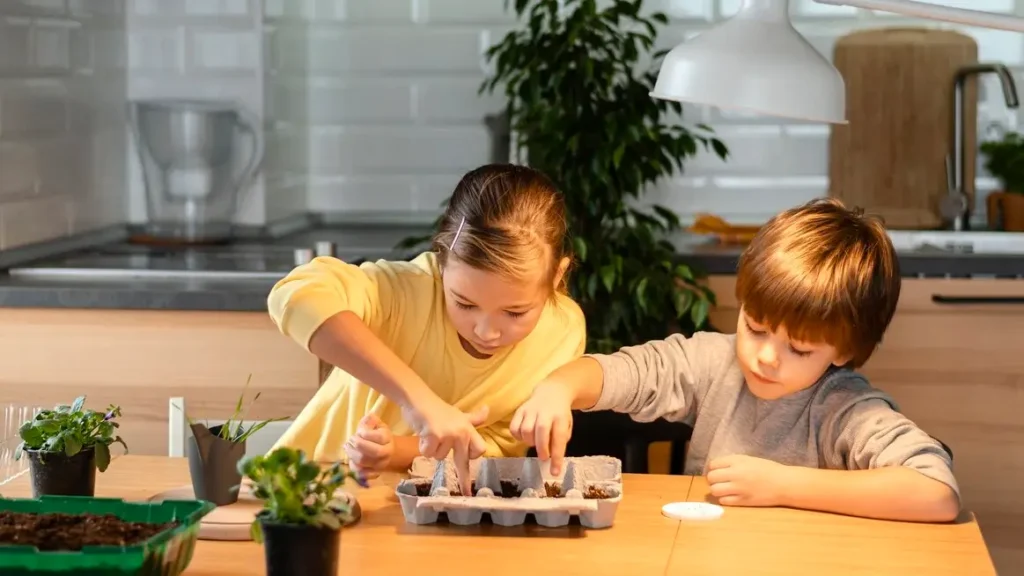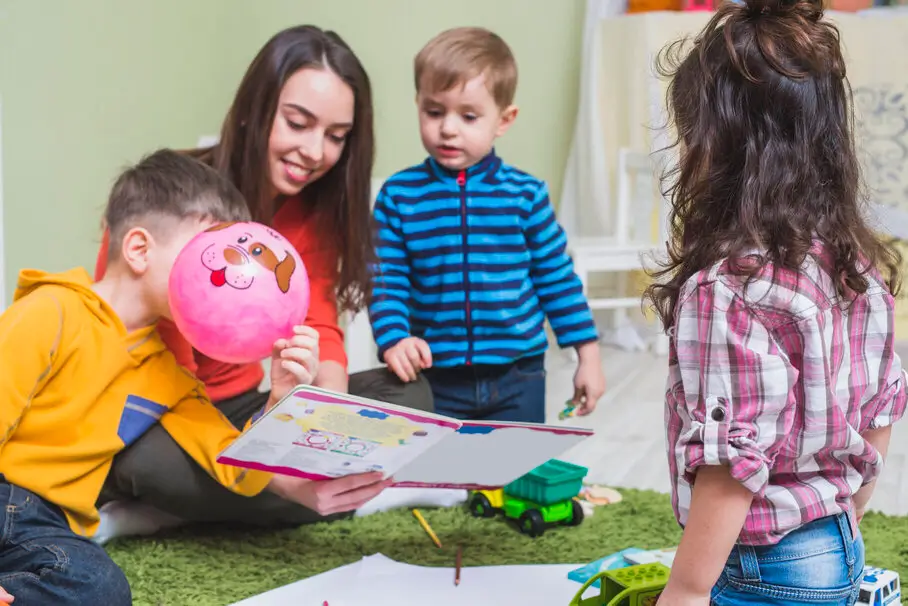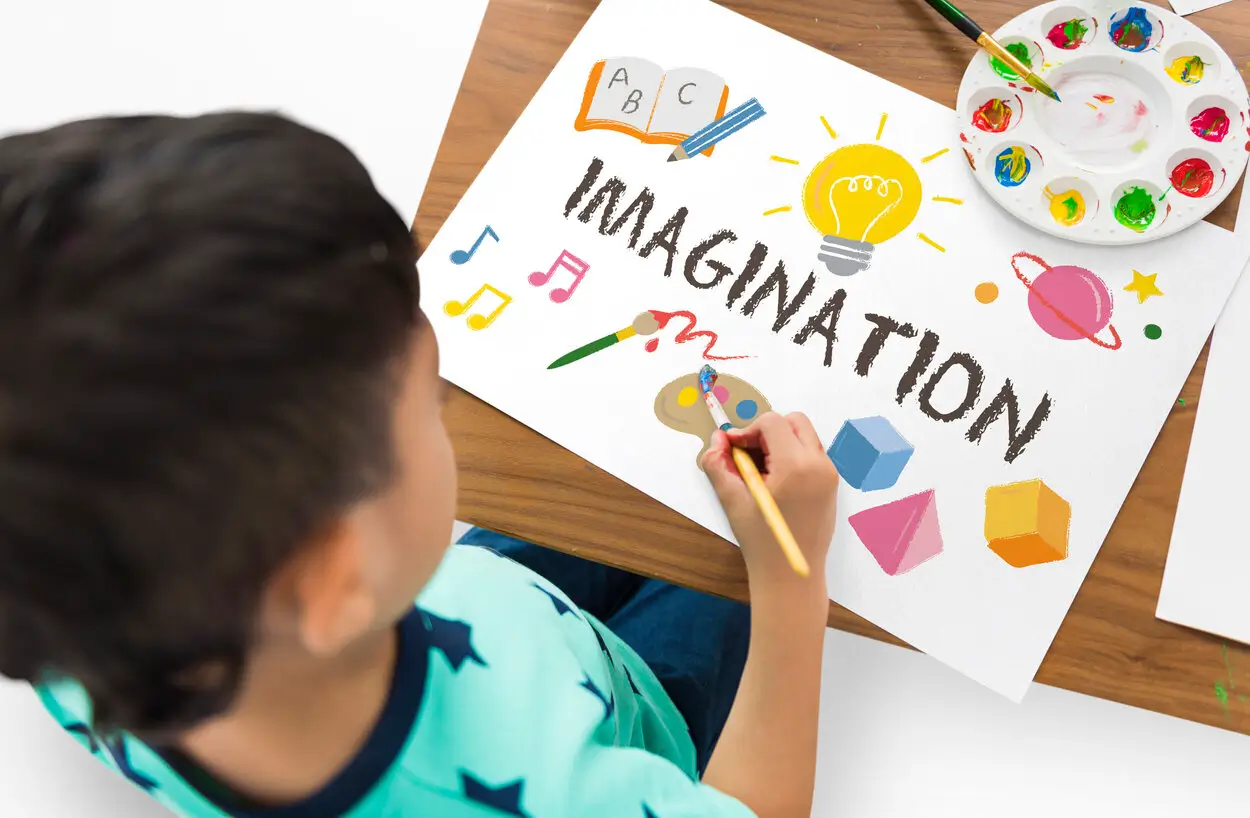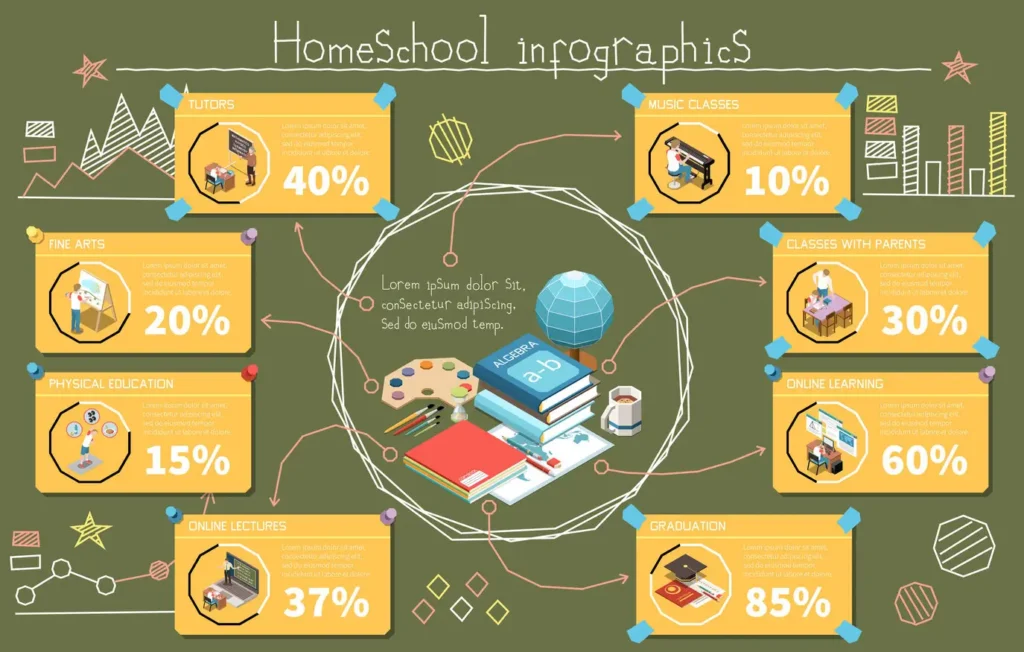Life skills for children grow through small habits and steady practice. Children learn by doing, observing, and trying again. Clear steps, short routines, and a calm tone make progress visible. This guide shows what to teach, how to teach it, and when to level up so life skills become part of daily life.
Essential life skills to teach kids
A clear roadmap helps families and schools build life skills for children without stress. The essentials fall into three groups, personal and cognitive, practical, and social emotional support by age-smart routines, short activities, and a simple list of life skills that grows by stage.
Personal and cognitive skills in life skills for children
These inner tools guide choices and actions. Built early, skills feel natural and consistent.
Focus and self-control for preschool life skills
Attention strengthens with brief, repeated practice. Keep directions short and use picture schedules. Lower background noise during hard tasks. Tiny focus games build control, and fun math for preschoolers blends movement with counting.
- Freeze dance, clap-and-copy, and sock-matching
- Preschool math activities: count jumps, sort snacks, shape hunts
- Toddler activities at home: spooning beans, water pouring, lid-and-tub matching
- Short nature study walks: find three rough leaves and one smooth leaf
Communication and listening as things to teach kids
Language and turn-taking unlock cooperation. Model eye contact. Use the rhythm: listen, repeat, respond. Role-play common scenes such as asking for help, refusing safely, and apologizing.
- Echo checks: repeat the instruction, then add one idea
- Dinner prompts: what felt tricky today and what helped
Problem-solving and thinking in life skills to teach kids
Choice within limits builds judgment. Open-ended puzzles, patterns, and comparisons expand flexible thinking. Preschool math activities support size, shape, and measurement; nature study invites questions about how the world works.
- Fix-it table: examine a loose part and propose repairs
- Three ways: move a book without hands using three methods
- Because rule: every answer includes because to keep reasoning central
Practical skills in life skills for children
Hands-on tasks reduce stress and build independence so life skills for children turn into habits.

Self-care and hygiene by life skills by age
Teach step by step. At preschool age, start with hand-washing, tissue use, and dressing order. Add hair care, nail checks, and packing a bag the night before. A small mirror checklist near the door keeps steps visible.
Chore list for kids: self-care edition
- Morning: brush teeth, wash face, dress, pull up the bed
- After school: rinse lunchbox, pack homework, quick sweep with a small broom
- Evening: clothes in hamper, outfit set for tomorrow
Home help and safety as things to teach kindergarteners
Household jobs teach planning, patience, and teamwork. Child-size tools step stool, light broom, cooler-coded cloths make work safe. Keep rules steady: oven hot, knives stored, sprays out of reach. For things to teach kindergarteners, begin with laundry sorting, plant watering, table wiping, and carrying light groceries.
Homeschool room or homework corner
- Low shelf with labelled bins; picture labels for non-readers
- One clear surface, two pencils, a simple timer
- A done tray for visible wins
- Quiet fidget jar with paper clips and a small magnet
Money and time basics with simple life skills
Money sense grows through touch and choice. Clear jars spend, save, share make goals visible. Paying with coins at a small shop shows trade in action. Time sense grows with visual schedules and analog clocks; cooler dots can mark ready-by times.
Easy practice
- Budget snack: choose within budget using coins
- Time boxes: 10 minutes reading, 10 minutes play, 10 minutes tidy
- Weekly shift: move one job from with help to solo
Social and emotional skills in life skills for children
With practice, life skills for children turn feelings and friendships into calm routines.

Empathy and perspective as childhood skills
Stories and feeling charts help identify emotions. Name the feeling first, then plan a step. Perspective prompts what might a friend be thinking to build kindness and fair play.
Taking on challenges for life skills for kids
Mistakes teach. Praise focuses on effort and strategy. Keep challenges small and frequent: tying laces, early bike practice, tasting a new food. Outdoor play climbing, balancing, digging builds judgment and courage.
Try-again ideas
- New-way minute after a stumble
- Hard-thing of the week logged across days
- Calm kit: timer, chewy snack, squeeze ball, first-steps card
Collaboration and conflict for skills for children
Planning words, goals, steps, fair keeps teams on track. Conflict resets stay short: pause, restate, plan. Short steps stick better than long speeches.
Family and class agreements
- Take turns talking
- Keep hands gentle
- Fix messes made
- Try first, then ask for help
Life skills for children by age
Guides support progress, not races. Adjust by readiness so life skills for baby rise with confidence.
Preschool age life skills map
- Self-care basics: toilet, hand-wash, dress
- One-step and two-step directions
- Preschool math activities for matching, sorting, counting
- Kitchen tasks: wash produce, stir batter
- Outdoor nature study: plant watering, leaf rubbings
- Supportive toddler activities at home
Early elementary life skills for toddlers
- Daily chore list for kids with two or three steady tasks
- Backpack checklist and reset routine
- Cooking with supervision: peeling, safe-knife chopping, measuring
- Money jars with small weekly amounts
- Friendship plans: invite, share, solve small conflicts
Upper elementary simple life skills and projects
- Weekly calendar review and goal selection
- Larger chores: laundry cycle, simple meal, vacuum shared spaces
- Project time: build, research, present
- Saving for a goal; price comparisons and unit costs
- Mentoring younger siblings on basic life skills
Fast activities that keep life skills for children growing
Short bursts keep energy high so life skills for children grow without fuss.
Ten-minute drills
- Card sort: sort, add, compare great for life skills for kids
- Snack chef: chop soft fruit, plate neatly, wipe table
- Laundry lotto: match socks and talk patterns
Weekend prompts with nature study
- Park quest: shades of green, textures, one tiny bug home
- Kitchen lab: compare melt times and chart the result
Screen-smart swaps in a homeschool room
- Replace 15 minutes of scrolling with build-and-tell challenges
- Turn a show theme into a map, recipe, or poster
- Use a simple desk zone as a create corner
Tracking progress for life skills
Visible wins encourage steady practice and keep life skills for children on course.
Checklists and can-do logs
A one-page sheet on the fridge lists tasks down the left and days across the top. A checkmark means done. Rewards stay simple and non-food: choose the music, pick the game, call a friend. Clear charts help life skills for children stick.
Adjusting by age
Tasks shrink if too hard and gain a twist if too easy. Responsibilities move from with help to solo one step at a time. Weekly check-ins reduce surprises and raise pride.
Sample weekly plan
Monday
Morning starts with a dress, teeth, and a two-step card for packing. After school, the lunchbox gets a rinse and the room gets a 10-minute reset. The evening ends with a reading log and an outfit set out life skills for children made simple.
Tuesday
Snack prep becomes the job: wash fruit, measure water, share portions. These simple life skills double as preschool math activities. Numbers feel real, and skills for children grow quietly.
Wednesday
A picture chore list for kids hangs near the homeschool room shelf. Match socks, wipe the table, place tomorrow’s folder in the bag. Small wins, clear finish lines.
Thursday
Three jars teach money sense: save, spend, share. Add one tiny decision, choose one activity from two to keep life skills by age realistic. This keeps the weekly list of life skills moving without stress.
Friday
Start with a two-minute tidy and a quick feelings check. After school, take a nature study walk and make leaf rubbings. Evening closes with a family movie and a rotating “snack chef” job fun and practical.
Weekend add-ins
Fold in toddler activities at home like toy resets and plant watering. Keep things to teach kids short and concrete. Repeat favorites next week so habits stick.
Internal reads to support life skills for children
- Hands-on preschool math activities with kitchen tools:
- Calm, low-cost homeschool room setup
- Outdoor and indoor nature study prompts
Why these life skills for children work
Multiple guides point to overlapping areas: focus, perspective-taking, communication, making connections, critical thinking, taking on challenges, and self-directed learning. Research on executive function highlights working memory, flexible thinking, and self-control. Short steps and repeated practice strengthen these tools over time, which is why life skills for children benefit from daily micro-habits.
Making connections across life skills for children
Connections form when patterns get named. A story links to an event, a recipe links to fractions, a leaf shape links to roof design. These links deepen memory and show how children are train for cross home and school.
Mini tasks
- Same or different: list three similarities or differences
- Story life link: find a real-world moment like a character’s choice
- Map it: link a home task and a school task with similar steps
Self-directed learning inside life skills for children
Ownership cements learning. Small choices lead to simple plans. Reflection on what went well and what to try next keeps improvement rolling and supports life skills.
Planner basics
- One goal for the day with three steps
- Two-box reflection: kept and change
Decision making and creativity for skills for children
Safe choices with clear limits build judgment. Creative twists keep practice lively: paper bridges, safer backpack hooks, or a radio-style reading ad.
Personal and cognitive practice packs for life skills
Working-memory warm-ups
- Number echoes backward
- Three-step treasure runs
- Add-a-sentence story builds
Flexible-thinking flips
- Another way: two new methods for the same task
- Rule change: tweak a rule mid-game and try again
- Odd one out: pick the item that doesn’t fit and explain why
Self-control and calm
- Five-finger breaths
- Beat-the-beep starts
- Quiet corner with soft light and a book
Practical home ideas that reinforce life skills for children
Kitchen basics by level
- Starter: wash produce, tear lettuce, stir batter
- Middle: read simple recipes, measure with cups, crack eggs into a bowl
Laundry ladder
- Sort whites and coolers; load, start, unload; fold and put away
Money moments
- Price-tag talk and unit-cost compare
- Wish list savings with weekly tracking
Social and emotional deep dives for life skills for children
Friendship builders
Stronger friendships grow from simple routines that fit real classrooms and homes. A compliment circle sets a positive tone each child offers one specific kind line to a peer and receives one in return. A daily help radar builds awareness; everyone looks for a small, practical way to assist a classmate or sibling. When mistakes happen, repair words name the action and state the better choice for next time. These habits develop childhood skills that support respect, turn-taking, and teamwork core skills for children across settings.
Ideas to try
- Pair-up tasks for things to teach kids: share materials, take turns leading a game, tidy a shelf together.
- Add one empathy item to a family list of life skills so practice happens every day.
- In a homeschool room, place a kindness chart near the reading corner.

Coping tools
Emotions settle faster with clear steps that count as simple life skills. First, label the feeling and choose the next action such as taking space or asking for assistance. For big energy, short movement bursts wall push-ups or chair squats release tension without disrupting the group. A reset routine keeps progress steady: sip water, breathe slowly, then rejoin the activity.
Age-smart supports
- Preschool life skills at preschool age: picture cards for feelings, a calm basket, and a two-step script.
- Things to teach kindergarteners: use a timer for cool-down time, then practice a do-over line with a partner.
- Older children by life skills by age: add self-check notes after conflicts and plan one change for next time.
Link to daily routines
- Add a “help someone” line to the chore list for kids so social practice pairs with tidying and meals.
- Create two or three basic life skills prompts for evenings at home, such as name a feeling, choose a step, thank a helper.
- Quiet afternoons: toddler activities at home like sorting calm-down jars or folding small towels reinforce patience and sharing.
This blend of friendship habits and coping steps stays practical, readable, and aligned with life skills for children.
Assessment without stress to support life skills for children
Student-owned simple rubrics
Three faces learning, getting there, got it help self-rating after tasks. One short note clarifies next steps. This keeps life skills for children visible and positive.
Family check-ins
A five-minute Sunday meeting sets one new task and one upgrade to an old task. One win gets logged. This loop steadily strengthens children’s.
Age-by-age extras that extend life skills for children
Preschool add-ons
- Button board, sink station, sound hunts
Ages 6–8 add-ons
- Calendar math, room map, two trusted numbers
Ages 9–11 add-ons
- Meal plan, grocery list, community thank-you note
Monthly themes to cycle life skills for children
- Week 1: Self-care boost
- Week 2: Home helper
- Week 3: Money and time
- Week 4: Friends and calm
Conclusion
Small, steady routines build confident, independent kids. When personal and cognitive habits meet practical tasks and social emotional tools, progress shows up at home, in class, and in the community. A short list of life skills posted near daily routines keeps practice visible.
Age-smart steps guided by life skills by age turn chores, play, and simple projects into real learning. Mix quick activities like preschool math activities and nature study with a clear chore list for kids to keep momentum strong. Most days only need minutes of focus, a calm reset plan, and a chance to try again. With this rhythm, life skills to teach kids become part of everyday life, and the full set of life skills for children grows naturally over time.





